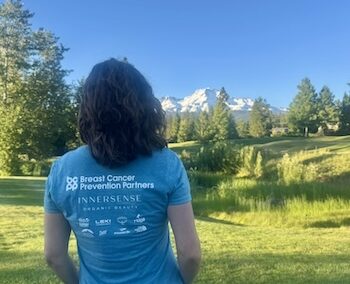BCPP opposes newly introduced chemical bill
FOR IMMEDIATE RELEASE
MARCH 10, 2015
CONTACT:
Erika Wilhelm, Breast Cancer Prevention Partners
SAN FRANCISCO – The Frank R. Lautenberg Chemical Safety for the 21st Century Act, introduced today by Senators Tom Udall, D -N.M., and David Vitter, R-La., undermines what few health protections from toxic chemicals now exist, further weakening our failed national chemical law, the Toxic Substances Control Act (TSCA). It advances the interests of the chemical industry and disregards years of work by health care professionals, scientists, public health advocates and state legislators to enact meaningful reform and to prevent diseases linked to chemical exposure.
“There is an urgent need to protect Americans from the dangerous chemicals we are exposed to everyday – unfortunately this bill doesn’t hit the mark on protecting public health,” said Nancy Buermeyer, Senior Policy Strategist at the Breast Cancer Fund. “Congress negotiated with our health and the American public lost out to chemical industry profits. We’re calling on senators from both sides of the aisle to support amendments that transform this bill into a robust defense for people to live free from contamination by toxic chemicals.”
Marika Holmgren, a breast cancer survivor from Half Moon Bay, Calif., couldn’t agree more.
“We may not know everything about the 84,000 chemicals that are approved for use in everyday products, but we know enough to recognize the simple truth that we must eliminate those chemicals that are poisoning us from the shelves of our supermarkets and drugstores,” Holmgren said. “It’s vital that we take action to reduce our daughters, sisters, and mothers’ exposure to chemicals that increase the chances that they’ll hear the same words I heard on February 1, 2007: You have cancer.”
The legislation fails to protect public health and even makes the EPA’s job more difficult than current law. The bill:
Makes it much harder for the EPA to regulate consumer products, even when they contain chemicals known to be unsafe.
Makes it harder for the EPA to implement safeguards for quality control, and stop toxic chemicals coming into the country in products made in China and other countries.
Does not allow the EPA to take quick action on the worst chemicals, particularly chemicals that persist in the environment and build up in the food chain.
Prohibits states from passing or enforcing policies protecting the public from chemicals, which the EPA has designated as “high priority.”
Prohibits states from passing and enforcing regulations identical to federal standards, undermining the overall enforcement of the law.
Breast Cancer Prevention Partners is committed to making this legislation as strong as it can be and live up to its promise of protecting public health. We will engage with our constituents to push for these necessary changes. Our health is simply too precious to risk.
By the numbers: The Need for Safer Chemicals
85,000+: The number of chemicals on the market and available for use
1976: The year our nation’s main law aimed at regulating chemicals used in commerce, or the Toxic Substances Control Act (TSCA) is passed.
1,000: The approximate number of new chemicals registered for use every year
200: The number of chemicals tested by the EPA for health effects
5: The number of chemicals that have been banned or regulated since 1976
###
Breast Cancer Prevention Partners (BCPP) is the leading national science-based policy and advocacy organization working to prevent breast cancer by eliminating our exposure to toxic chemicals and radiation.



